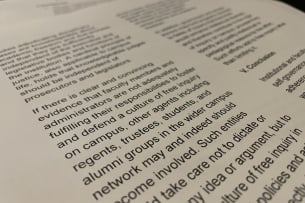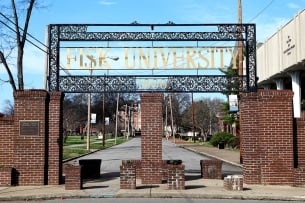Filter & Sort

New Academic Freedom Principles Open Door to Outside Intervention
The Princeton Principles—endorsed by a program and some professors at the university, but not Princeton itself—say off-campus actors “should become involved” in some instances.

Campus Engagement Tip: Promote Effective Club Leadership Models
To promote student participation, higher education practitioners can encourage well-organized student programming groups to carry on traditions and maintain a defined mission.

Oregon State, Washington State Sue Over Control of Pac-12
Two remaining members of the historic conference say they, not their departing peers, should decide its future. And where are the adults in the room, Oregon State’s leader asks.

Academic Success Tip: Use Pop Culture Metaphors to Aid Student Interests
Ohio State professors use superheroes to make human anatomy courses more interesting to students, increasing their motivation and understanding of the material.

Connecting On-Campus Work to Life Skills
To further connections between curricular and experiential learning, the University of Iowa created a program to hold regular conversations between student employees and their on-campus supervisors, deepening their on-the-job learning and relationships on campus.

‘Pay Up or Leave,’ a University Tells Students
A new policy at historically Black Fisk University requires students to pay off debts of more than $1,500, get on a payment plan or leave. Students are pushing back.

Allergen Program Provides Comfort and Confidence in Dining
Duke University’s “Ask Me” allergen program trains dining staff to serve as allergen experts, creating a safer environment for students with food allergies.

Student Wellness Tip: Support Tech Breaks, in Class and on Campus
Helping students to disconnect involves encouraging self-reflection on technology use, no-tech class activities and apps and phone settings that provide motivation for more no-mobile-device time.
Pagination
Pagination
- 198
- /
- 703